How To Get Rid Of Acne – Complete Guide To Zit-Free Face
You’ve planned a date with your partner; you’re super excited and want to look your best.
You look in the mirror and there it is – A cluster of pimples popped up from nowhere. You curse yourself for scoffing that pizza or Chocó lava. Well, stop cursing yourself and read this article to know – How to get rid of acne really fast?
Because you can’t go to meet him with that pizza face and ruin your date.
Skin tags, unwanted facial hair are still bearable, as you can hide them or remove them. But acne, no way, it’s gross, unsightly and lowers your confidence.
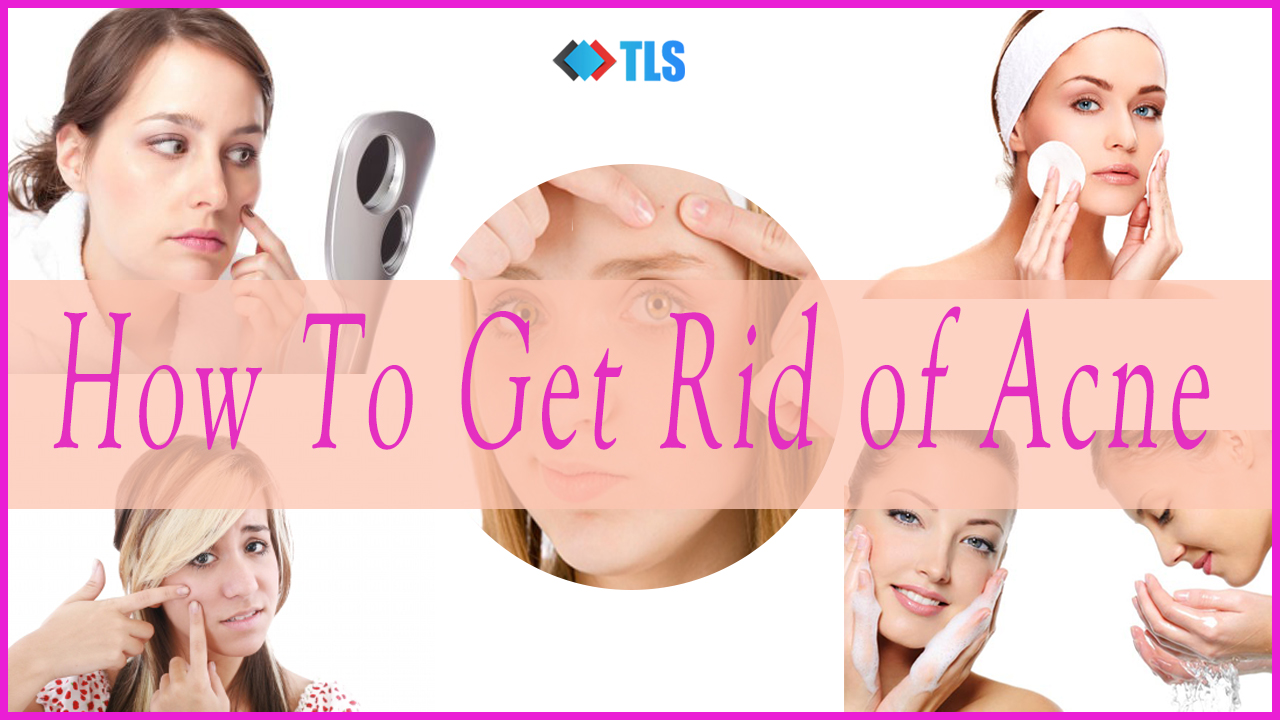
Also, if you’re a teenager, you might feel like you’re the only one facing this problem. Cheer up because you aren’t alone; puberty and pimples or acne go hand in hand.
But, you still have so many questions like – Did junk food really give you pimples or acne? Does makeup cause acne? Does pregnancy cause acne?
Well, the links between your skin and your diet may surprise you. Because in this article, I’ll try to cover A, B, C of acne, its causes and its types.
So, let’s get started.
What Causes Acne?
Acne forms when your oil glands produce too much sebum, which along with dead skin cells clog pores. Bacteria grow and irritate those clogged pores, giving a red and swollen look to them.
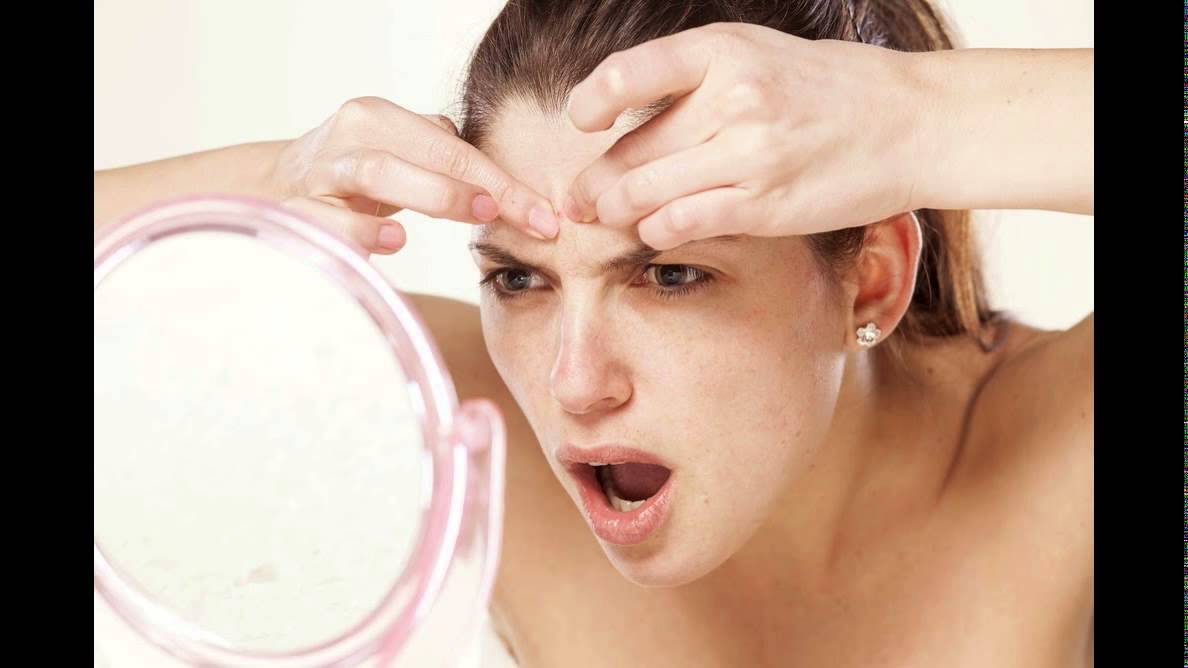
The exact cause of acne is not known, but doctors believe it’s the result of several related factors.
- During puberty, androgens or male sex hormones, increase in both girls and boys and cause the sebaceous glands to enlarge and make more sebum. This sebum is the culprit behind your acne.
- Menstrual cycle is also one of the most common acne triggers. Acne lesions form a few days before the cycle begins and go away after the completion of the cycle.
- Some women experience worse acne during pregnancy and menopause, but acne improves in some women in these times. Birth control pills can improve acne, but they aren’t for everyone.
- Certain medicines, such as those used to treat types of depression and epilepsy can also cause acne.
- Pressure or friction on the skin caused by helmets or backpacks is also one of the many causes of acne or make it worse.
- Well, you’ll not like to hear it, but these stupid bumps can be hereditary or in your genes. If you’ve gotten a family history of acne, there is a greater chance you’ll have it too.
- Oily make-up.
Your Favorite Foods That Cause Acne
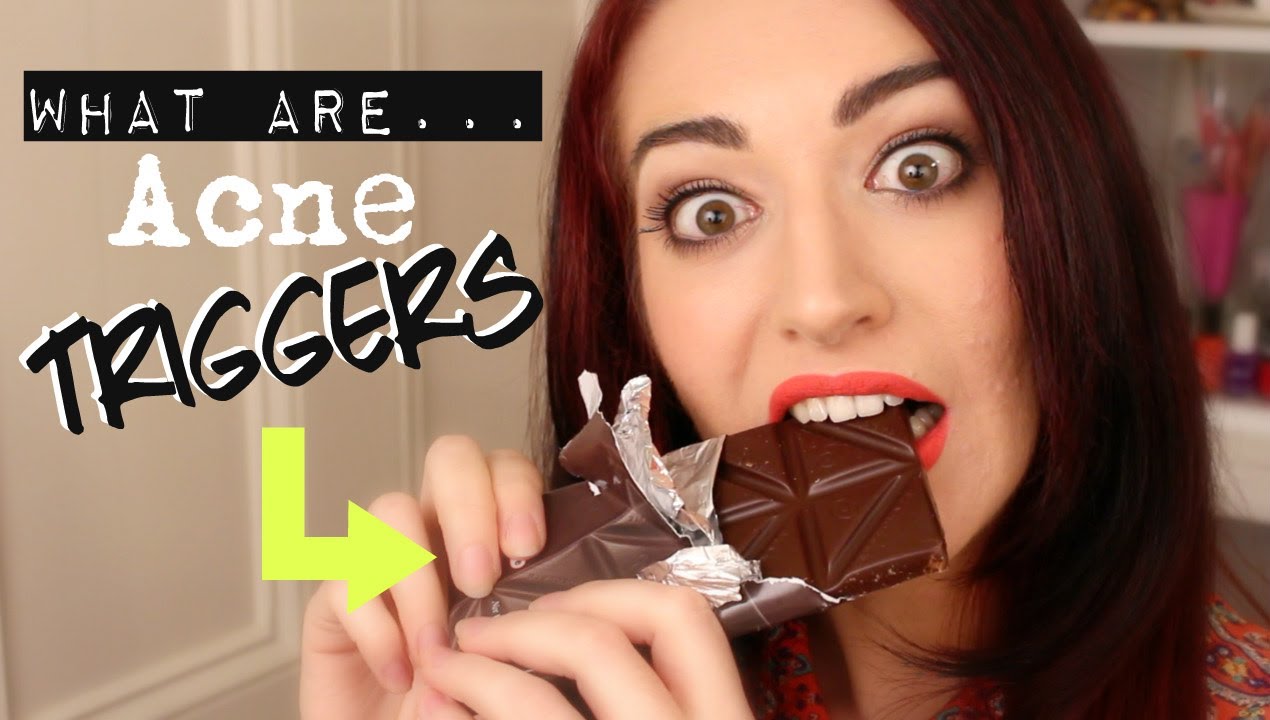
- Foods high in refined carbohydrates
- Sugar/fructose
- Diet with high glycemic index, basically processed food like refined grains and bread that are quickly broken down into sugar.
- Gluten and other lectin-containing foods
Does Chocolate Cause Acne?
No. Hurray!!
An experiment conducted by the University of Pennsylvania has proved so. Because acne forms when the oil glands produce too much sebum, that along with dead skin cells can clog pores. Chocolates don’t have a hand in those stupid flare-ups.
So, now you don’t have to ditch your pure love .i.e. CHOCOLATES!!
Does Smoking Weed Cause Acne?
Bad news for the stoners!!
The most potent ingredient in weed is tetrahydrocannabinol (THC). When you vaporize, smoke, or ingest it, there’s a sudden increase in testosterone levels. These increased testosterone levels cause your skin’s oil glands to churn out more sebum, which CAN lead to breakouts.
But, there is no valid proof for it, so keep enjoying your pot.
Does Adderall Cause Acne?
The answer is both – Yes and No.
I don’t want to confuse you, but experts say that individuals taking Adderall XR can face mild skin problems, such as acne or rash.
If you take this medication and have reoccurring or worsening acne, rashes or other symptoms, speak with your doctor NOW.
Does Coconut Oil Cause Acne or Cure Acne?
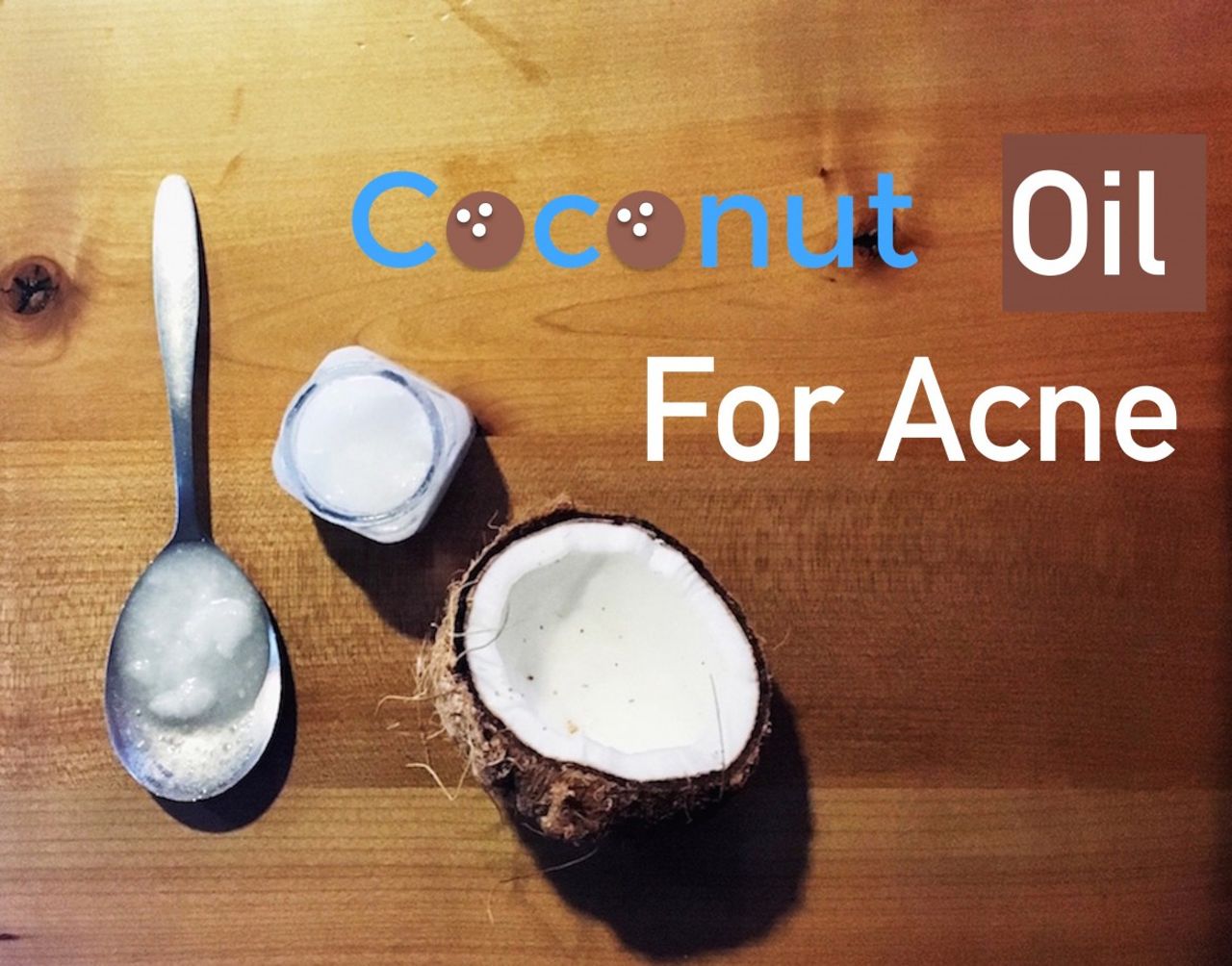
No, if you use it in correct way.
Coconut Oil has the ability to treat your acne and acne scars, as it kills the bacteria causing this menace.
All you’ve to do is:
- Steam your face.
- Apply a thin layer of coconut oil.
- After 2 minutes, wipe it off with a tissue.
Because leaving it on the skin can clog the pores and aggravate the problem.
Different Types of Acne – Because Only One Was Not Enough To Ruin Your Looks
1. Comedones Acne
Comedones are hair follicles that have become clogged with dead skin cells and oil. Comedones can develop into bumps called blackheads and whiteheads.
2. Blackheads
Blackheads are comedones which are open on the surface of your skin. Blackheads on nose are a common sight, but they’re unsightly and filled with dead skin cells and excess oil. Oil’s reaction to the air, not dirt causes the comedone to turn black. They can be treated with over-the-counter medications.
3. Whiteheads
Whiteheads are comedones that stay closed on the surface of the skin. They happen when skin cells and oil prevent clogged hair follicles from opening. Many of the over-the-counter medicines that treat blackheads are also effective in treating whiteheads.
4. Papules
Papules are comedones that have become inflamed, resulting in small pink or red bumps on your skin. They’re sensitive to touch. If you pick or squeeze them, it can make the inflammation worse and might lead to scarring. A cluster of papules indicates moderate to severe acne.
5. Pustules
Pustules are also inflamed pimples. They resemble whiteheads with a red ring around the bump. They’re typically filled with yellow or white pus. Avoid picking or squeezing pustules as it can result in dark spots on your face.
6. Nodules
Nodules are the worst types of acne as they develop deep within the skin. They’re large, inflamed bumps that are firm to the touch and often painful. OTC treatments might not clear them up, but prescribed drugs can be effective.
7. Cysts
Cysts are more severe form of acne. They’re large, pus-filled lesions that resemble boils. Like nodules, cysts are also painful and should be treated by a dermatologist.
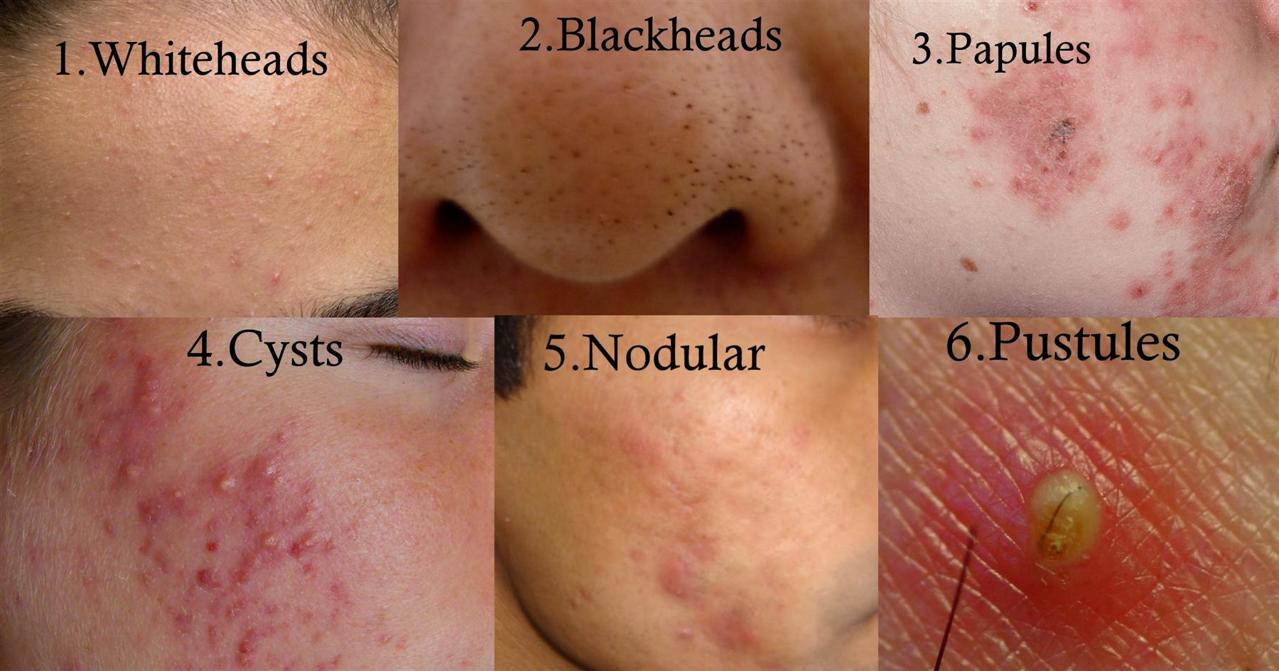
8. Mild Acne
Your acne falls into the “mild” category if you’ve less than 20 blackheads or whiteheads or less than 15 inflamed bumps. It’s usually treated with OTC topical medicine. But it may take up to eight weeks to see the acne fade away.
9. Moderate Acne
If you’ve more than 20 whiteheads or blackheads, more than 15 inflamed bumps, or more than 30 total lesions, your acne is considered moderate. Your dermatologist will recommend prescribed medicines for moderate to severe acne. It might take several weeks to notice the results, and your acne may appear to worsen before it gets better.
10. Severe Nodulocystic Acne
People with severe nodulocystic acne have multiple inflamed nodules and cysts. It may turn deep red or purple and often leaves scars. Sometimes, the doctor injects corticosteroids directly into nodules and cysts to reduce their size and inflammation.
11. Acne Conglobata
Acne conglobata is the most severe types of acne. It involves many inflamed nodules that are connected to other nodules under the skin. It affects the arms, neck, chest, and buttocks and often leaves scars. This acne is more common in men and is sometimes caused by taking testosterone or steroids.
12. Acne Mechanica
Acne mechanica is caused by heat, pressure and friction against the skin, as a result of wearing sports gear like helmet or baseball cap. It is also called “sports-induced acne” as it occurs frequently in athletes. It can be prevented by wearing an absorbent material under sports equipment and shower immediately after activity.
Debunking Acne Myths
1. Bad hygiene
You think that acne is caused by poor personal hygiene, but this isn’t true. If acne has decided that it’s going to get you, then it will, no matter how clean your skin is.
2. Oily Food
Well, there is no proof that acne is caused by what you eat. Therefore, eating chocolate or greasy food doesn’t cause acne, so you can eat them to your heart’s content. However, eating a balanced diet is good for your health, so always have a healthy diet.
3. Make-up
Wearing make-up can cause pimples or acne is complete rubbish, unless you go to sleep with make-up on. But, if you apply make-up without washing your hands, then you can get acne. The less you touch your skin, the better.
How to Get Rid of Acne with Lifestyle Changes?
1. Exercise regularly
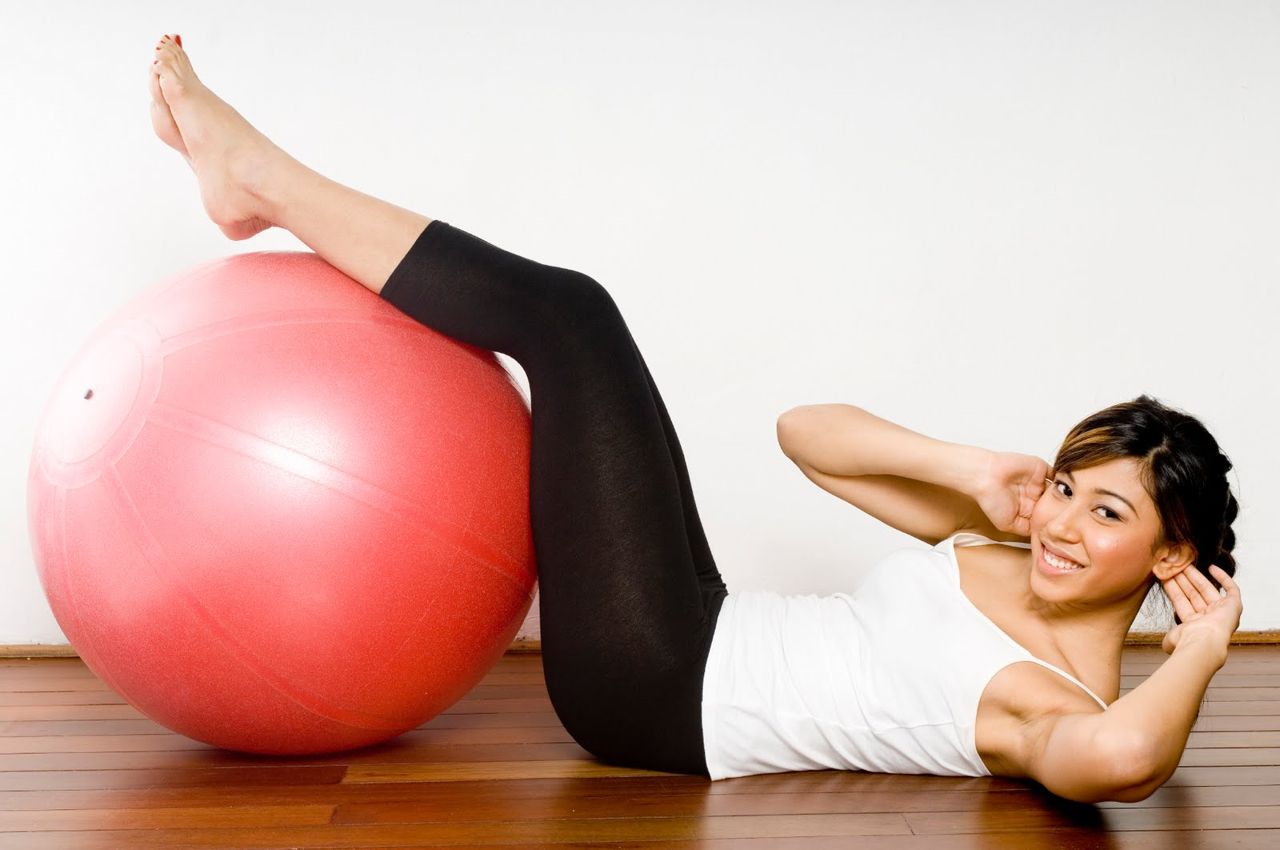
According to the doctors, exercising is the key to healthy skin; therefore it can help to reduce your acne. Stress and excessive oil production are the two main reasons of acne. Exercising addresses them as it releases endorphins which lower stress levels and reduce oil-production.
So, try exercising regularly for a minimum of 30 minutes to help treat your acne.
2. Control Your Urge Of Touching Your Face Again And Again
This is incredibly difficult, because people touch their faces quite often, but it can prove to be the best acne treatment. For example, if you’ve the habit of resting your face on your hands, scratching your face, and picking at pimples just like me.
You and I are inviting more bacteria to your skin, which will make your acne worse and leave you with acne scars.
3. Shower Often to Get Rid of Acne
Although you don’t like to shower more often and want to keep your water bill down, but showering regularly can help to treat stubborn acne.
Because it kills bacteria, keeps oil production low, and rinse away dead skin cells. Remember to shower after exercising to remove the dead skin cells from your body.
4. Maintain a Healthy Diet
A study has proved that there is a link between certain foods and acne. Avoid foods that contain a lot of sugar (bad news for people having sweet tooth) or are processed.
So, get proper amount of nutrients from whole grains, vegetables, fruits, and protein to limit unnecessary oil production and help your skin to regenerate faster.
5. Sound Sleep is The Word
Kill two birds with one stone as sleeping helps to relax your body and detoxify it. So, get at least 7-8 hours of sleep. Yes, I know, it sounds impossible in your “busy bee” life, but you’ve to manage it.
If you don’t get enough sleep, your skin will not have the time or ability to renew its skin cells.
6. Drink Plenty of Water
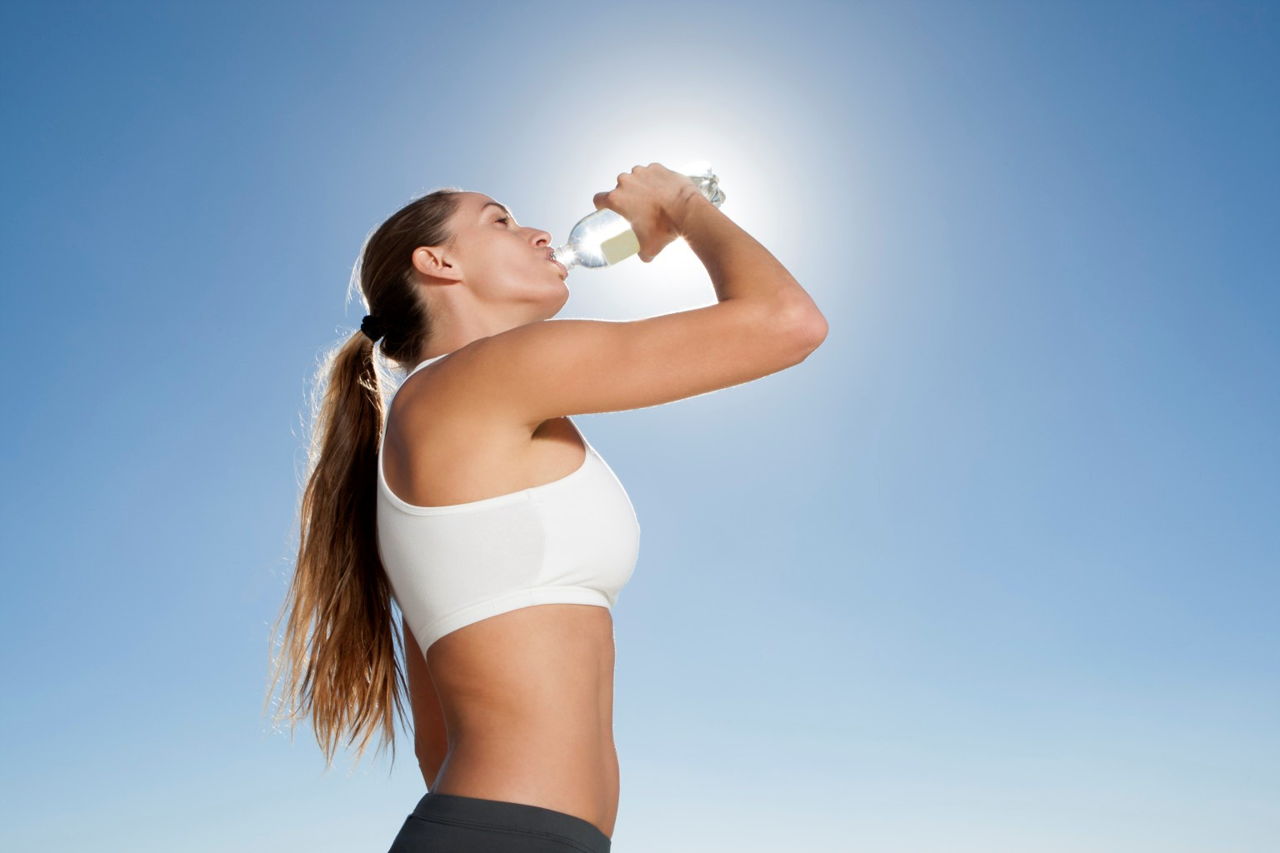
It has been told many times that you should drink 8 glasses of water a day. But, there isn’t a set amount on how much water you’re supposed to consume. Water helps to purify your skin and detoxify your body, so make sure to drink lots of water throughout the day.
If you don’t feel like drinking tasteless water, here are some detox water recipes to cleanse your body.
7. Relax Your Mind and Body
Do your skin and your mind a favor by giving yourself some time to relax. High stress levels lead to increased production of sebum, which results in acne. So get a massage, read your favorite book, meditate, or practice yoga and watch your skin transform.
8. Keep Your Fabrics Clean
Fabric like pillowcases, towels, and sheets that comes into contact with your skin daily are places where bacteria builds up. Therefore, they should be washed at least once a week to remove oil and bacteria.
9. Use Oil-Free Makeup Only
If you can’t do without makeup, then find an acne-fighting oil-free mineral makeup to help prevent your acne from worsening. If possible, avoid wearing makeup as it clogs your pores over the course of the day. Also, clean your makeup brushes regularly to prevent bacterial growth and infections.
10. Protection From UV Rays
UV rays are the number one cause of premature aging. A small amount of sun exposure might improve acne slightly, but in this way you’ll tan yourself. Also, too much exposure to ultraviolet rays is not advised because it increases the risk of skin cancer.
11. Stay Away From Toothpaste, Lemons, And Baking Soda
Toothpaste, lemons, and baking soda, are touted as common remedies to treat acne or improve discoloration but they’ll damage skin instead. If not used with care, they may cause irritation or chemical burns on your face. A study has also advised to avoid these ingredients.
How to Get Rid of Mild Acne?
There are many ways to treat mild acne. You can wash your face twice a day with lukewarm water and an oil-free cleanser. Your dermatologist may suggest you some over-the-counter cream or lotion.
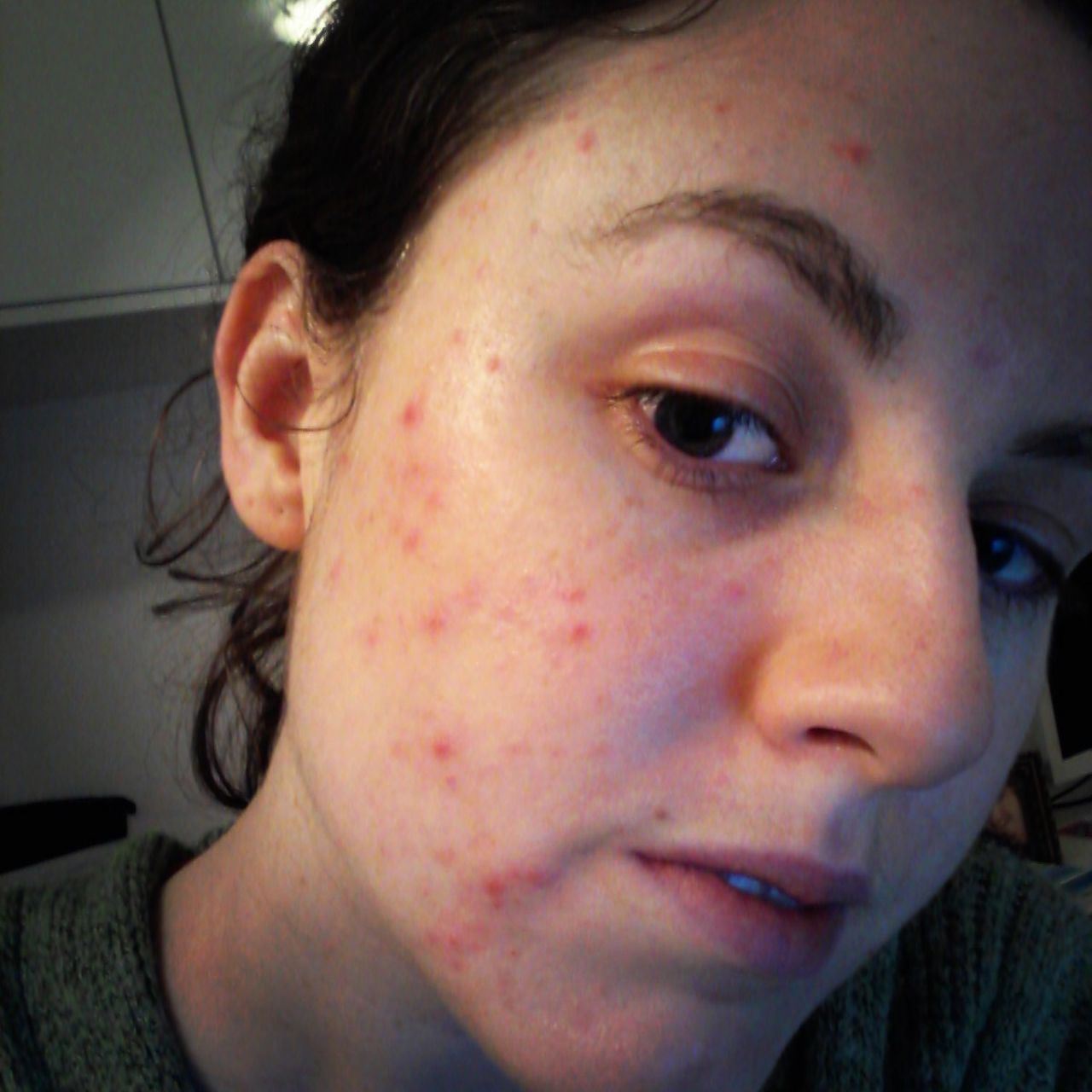
But, these medicines can make your skin dry if you don’t use them in right way. So, be sure to follow the instructions given by your doctor.
If these medicines don’t work for you, then your doctor may prescribe a cream or lotion with:
- Benzoyl peroxide
- Salicylic acid
- Sulfur
- Resorcinol
- Metronidazole
- Clindamycin
If your acne does not get better after two months, then talk to your doctor about changing your acne treatment.
How to Get Rid of Moderate Acne?
Moderate acne consists of several whiteheads, blackheads, pustules and papules that cover around ¼ to ¾ of your face and/or other parts of your body.
It can be treated with retinoic acid, which is an altered form of vitamin A, and antibiotic gels or lotions. Your doctor might prescribe an antibiotic pill, like erythromycin.
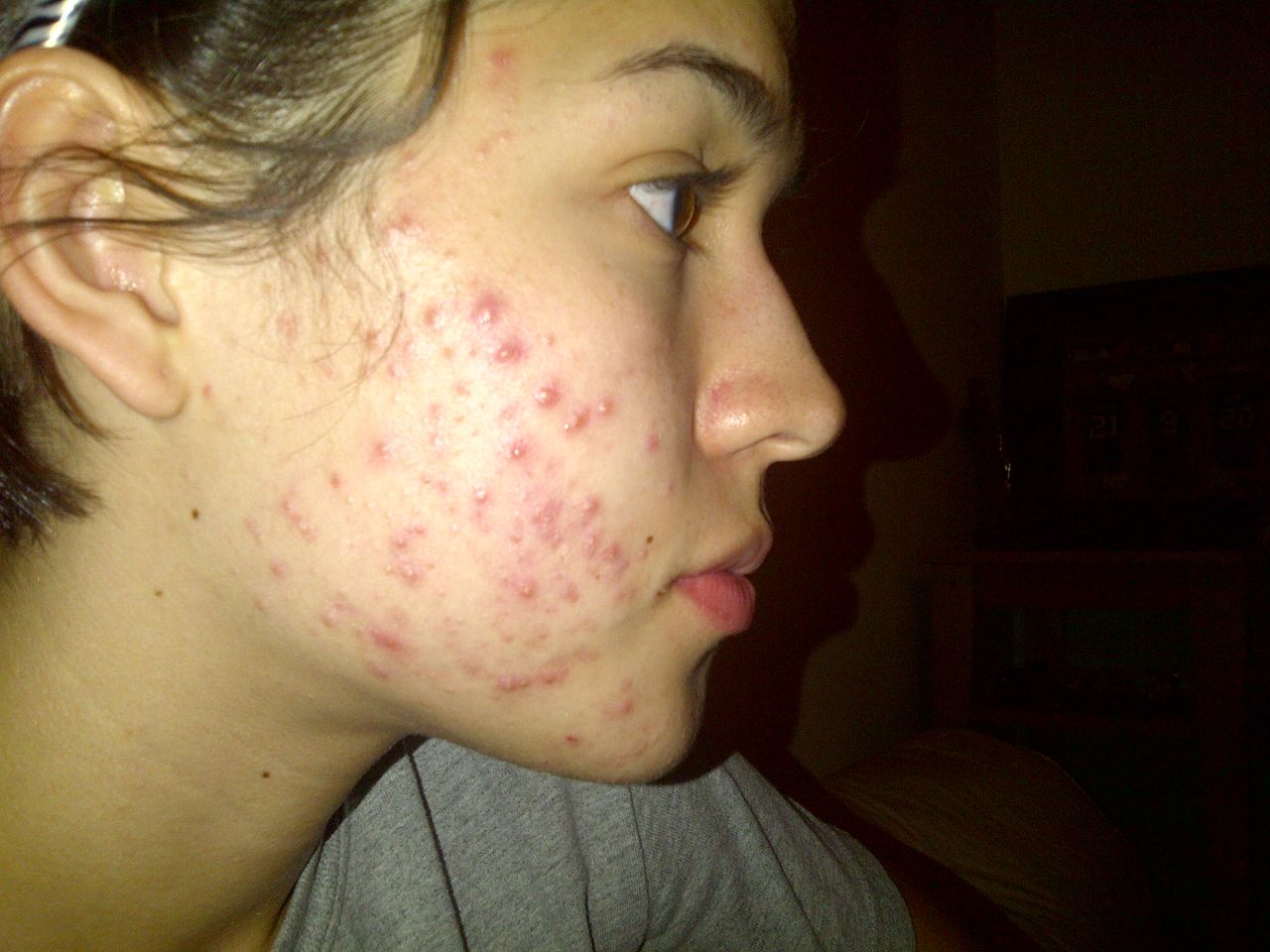
But, if you’re taking birth control pills, antibiotics can affect their work. So, make sure to use a second method of birth control.
Antibiotic pills and retinoic acid can make the skin sensitive to the sun. Therefore, avoid going out in the sun or wear sunscreen, if you need to go out.
How to Get Rid of Severe Acne?
Severe acne should be treated by a dermatologist only. Because it consists of deep cysts, redness, swelling, and treating it yourself can do extreme damage to your skin.
In some cases, large inflamed cysts are treated with an injection of a drug that lessens the swelling, redness, irritation, and promotes healing.
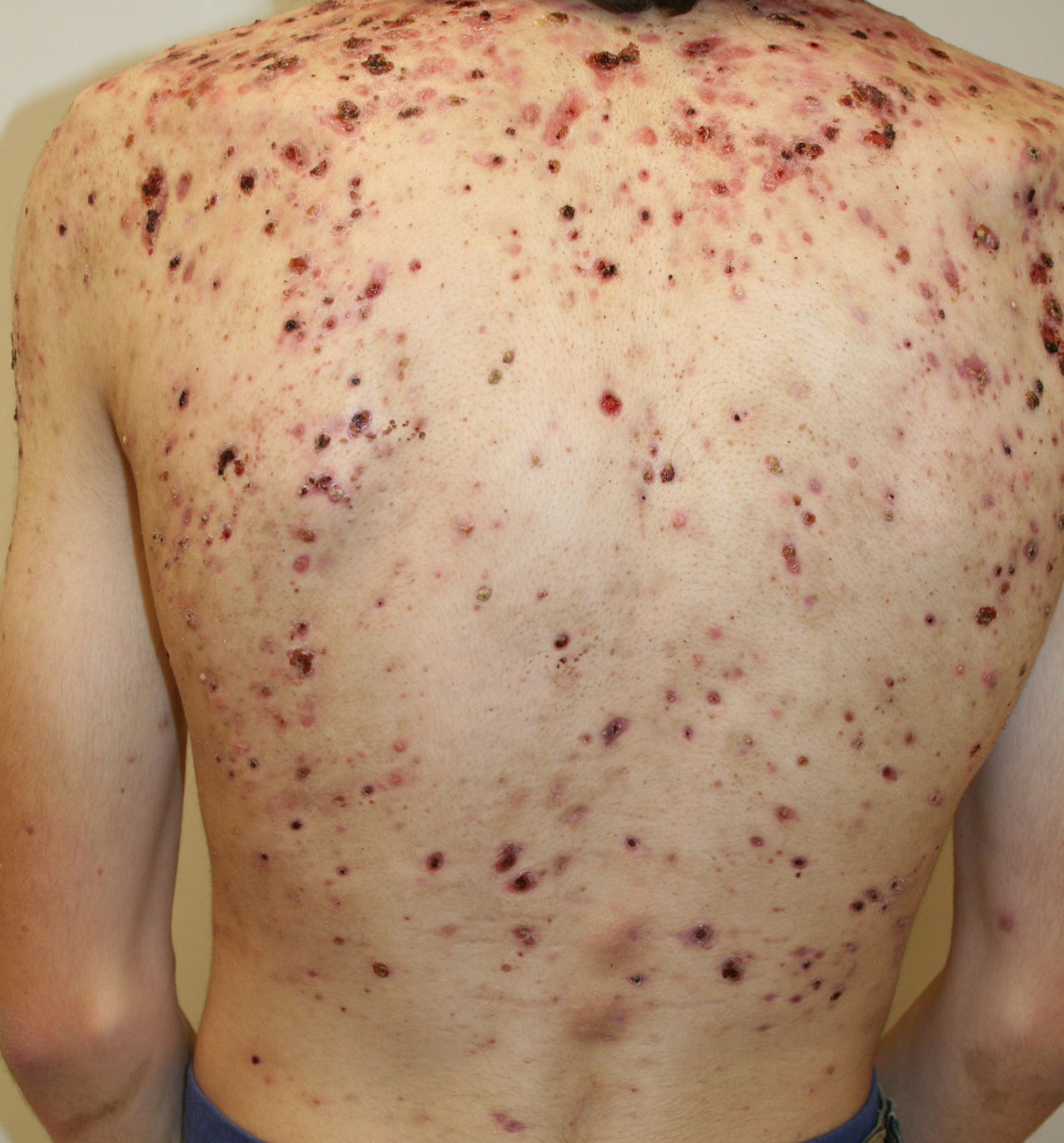
Unfortunately, if other treatments have not worked for you, your dermatologist can also prescribe Accutane. It’s a strong medicine that can help in preventing scarring and treat active disease.
Side Effects of Accutane:
- It can cause birth defects. So, it’s important that you aren’t pregnant and don’t plan to get pregnant while taking this medicine.
- Dryness, burning, itching, redness, or other signs of eye inflammation.
- Mood swings.
- Bone or joint pain.
- Difficulty in moving.
- Nose bleeding.
- Redness, scaling, pain, burning, or other signs of inflammation of the lips.
- Skin infection or rashes.
It’s up to your dermatologist and you to decide whether this medicine is right for you or not. Always keep in mind to use prescribed medicines exactly as you’re advised. Taking more medicine than you are advised may make acne or your general health worse.
Also, don’t be an idiot and double up the dose, if you’ve missed one. Simply, ask your doctor what to do in that case. After all, he’s called a doctor for some reasons, right?
Some ugly large cysts don’t respond to medication and may need to be removed or drained. You should never try to pull out the stunt of draining or removing your acne by squeezing or picking. Because this can lead to infection, and worsen your acne. Your dermatologist is the only person who should do this.
If you don’t see a change in your skin after six to eight weeks, then talk to your doctor about it.
Summary
Acne is part and parcel of your life, so you can’t evade it. Most people with acne are of 12 – 25 years of age, but some older are also affected by it.
It usually affects the face but may also affect the neck, back, and chest. Its severity can range from mild to severe. Untreated acne can last for 4-5 years before settling.
There are various treatments and home remedies to end this menace, but you’ve to be patient.
At last but not the least, I really hope that your search of how to get rid of acne fast ends with this article.
If you’ve any queries, then don’t hesitate, just ask them in the comments section below.
